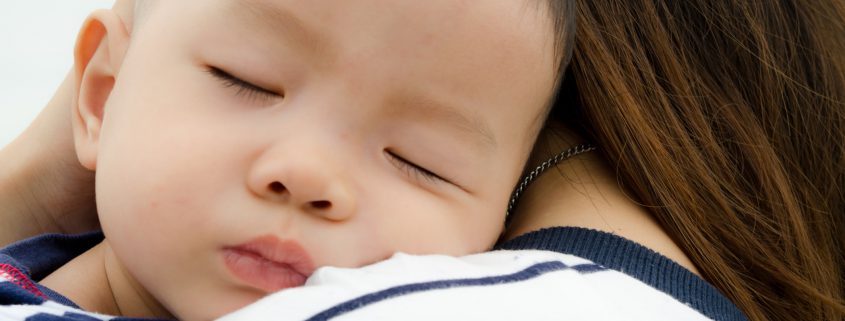
Adopting Your Step Child
Step-parent and second parent adoptions are similar, and in New Jersey, the same legal procedures apply to both. Step-parent adoption is adoption by the spouse of a child’s legal parent. Second parent adoption, also known as co-parent adoption, is adoption by someone who is already acting in a parental role, but who is not necessarily the legal parent’s spouse. In many cases, the second-parent is the child’s intended legal co-parent even before the birth, but lacks the biological parentage that automatically confers parental rights. This is often the case when couples conceive via some form of assisted reproductive technology. As advancements in assisted reproduction have increased, second parent adoption has also become increasingly common, both for same-sex and opposite-sex couples.
Competing Parental Rights
Under current New Jersey law, a child can only have two legal parents. This is in spite of the fact that there has been an increase in family situations where more than two people assume parental roles. This includes situations where a child spends time with one or two step-parents, as well as with two legal parents. It also includes situations where same-sex couples and opposite-sex friends form families. When more than two people are sharing parental responsibilities fairly equally, a child may, as a practical matter, have two mothers and one father, two fathers and one mother, two fathers and two mothers—or in rare cases, an even greater number of “de facto parents.” Nevertheless, only two of these can be legal parents.
There are some situations where a third person acting in a parental role may have some custody or visitation rights, but these rights are limited to those conferred under the “psychological parent” or “de facto parent” doctrine. Regardless of the extent of their parenting role, a third person can gain legal parental rights through a second parent or step-parent adoption only if one of the child’s former legal parents is deceased, or if their parental rights are terminated. Sometimes a legal parent will voluntarily surrender rights; in other cases, rights may be terminated due to operation of law. In either case, the former legal parent no longer has any rights or responsibilities pertaining to the child, including the responsibility for paying child support. The second parent or step-parent who adopts the child becomes fully responsible, both financially and legally.
Rights of Donors and Surrogate Parents
When someone acts as a donor or surrogate for a couple who cannot conceive or bear their own child, whether due to infertility, other health issues, or same-sex status, the parental rights of the donor or surrogate will depend on the exact procedure being utilized and other factors, including the state of the child’s birth. Laws regarding parental rights in assisted reproduction vary from state to state.
Under New Jersey’s Parentage Statute, anonymous sperm donors do not retain parental rights. When a mother is artificially inseminated with the consent of her spouse under physician supervision, a presumption of legal parenthood generally transfers to her spouse. If the mother’s partner is not her spouse, however—meaning not her legal partner based on marital, civil union or domestic partnership status—then second parent adoption will be necessary.
Surrogacy is far more complicated than donation. Contracts transferring parental rights from a surrogate to another party prior to birth are not valid in New Jersey. Even when a surrogate has no genetic ties to a child, she gains legal parental status simply by carrying the child. Second parent adoption by the intended parent who lacks a biological tie to the child is therefore generally necessary, and can only occur after the surrogate’s rights have been legally terminated.
For more information, see Parental Rights in Assisted Reproduction. Situations involving assisted reproduction are complex, and the law has been changing rapidly in recent years. It is very important to seek the advice of an attorney before making any assumptions about parental status.
Termination of Rights Due to Parental Unfitness
The State of New Jersey can terminate parental rights on the basis of “unfitness” if a parent abandons or abuses a child. New Jersey law defines child abuse or neglect as any of the following:
- Causing serious physical or emotional harm to a child, or allowing another person to cause such harm;
- Creating a risk of physical harm to a child, or allowing another person to create such risk;
- Sexually abusing a child, or allowing another person to sexually abuse a child;
- Harming a child, or creating a risk of harm to a child, by failing to provide proper care;
- Using excessive physical punishment on a child; or
- Abandoning a child.
Parental rights are never terminated casually, even if a parent has little contact with their child. For more information, see New Jersey Division of Child Protection and Permanency (DCP&P).
Step-Parent and Second Parent Adoption Procedures
If there is no second parent who currently holds parental rights, a step-parent or non-biological second parent can file for adoption in New Jersey based solely on the fact that the child was born in New Jersey, provided that the filing is completed within 3 months of the child’s birth. Whether the adoption takes place immediately or at a later time, it will generally be a streamlined process; the child’s legal parent must consent to the adoption, and the child will ordinarily not be changing households. A court procedure will still be necessary to finalize the adoption, but the court can bypass the home study, and instead take direct evidence of the facts and circumstances of the adoption at a preliminary hearing.
For legal representation you can trust and rely on for your New Jersey adoption matters, contact the New Jersey family lawyers at Weinberger Law Group, LLC. With our help, you can begin the process of solidifying your legal parental status through a New Jersey second parent or step-parent adoption. Secure your family’s future. Call us today: 888-888-0919.

